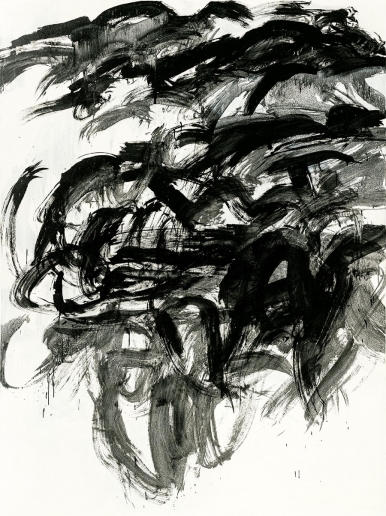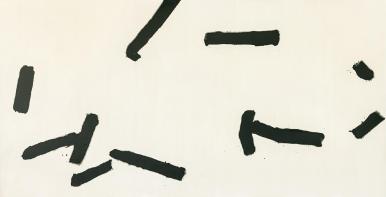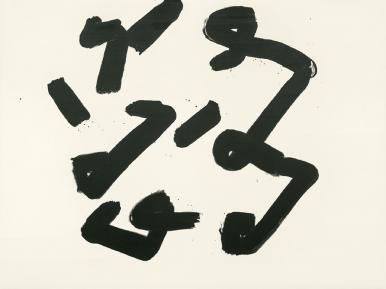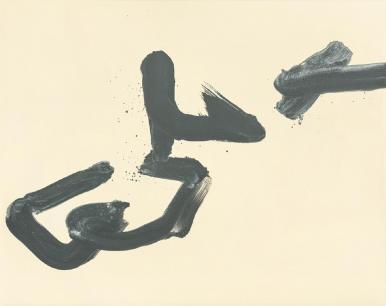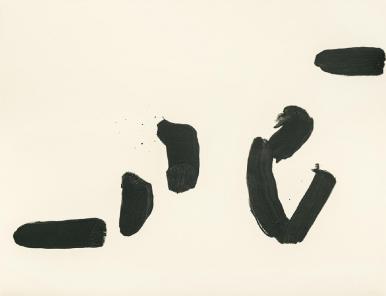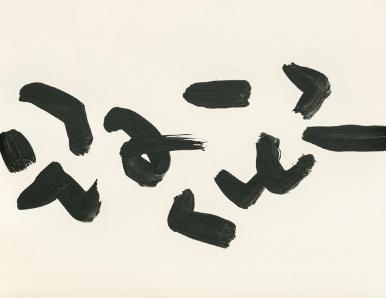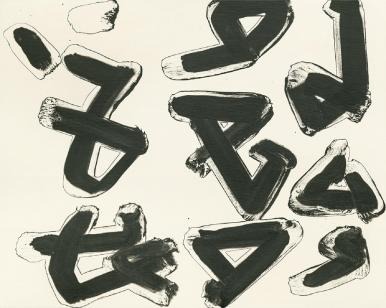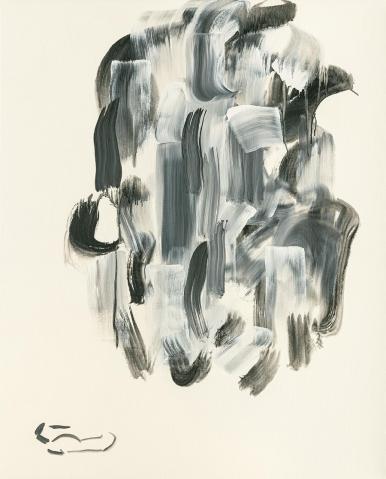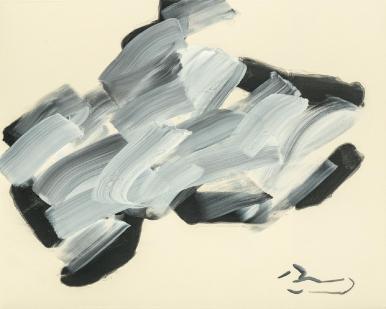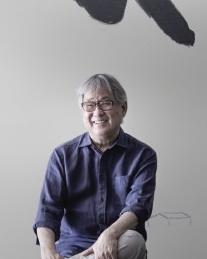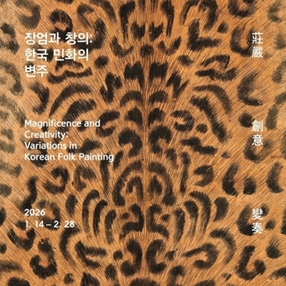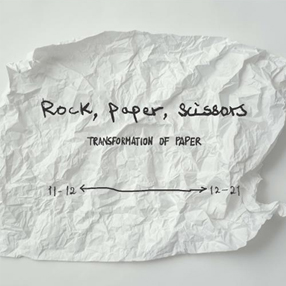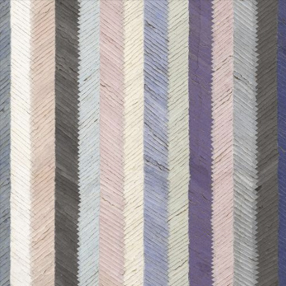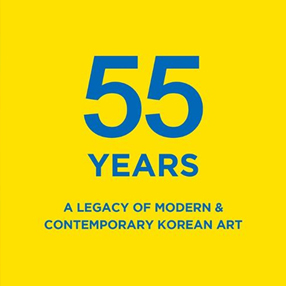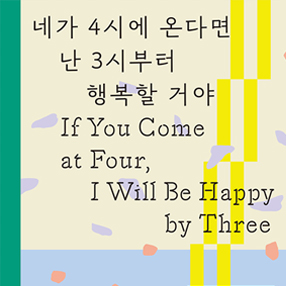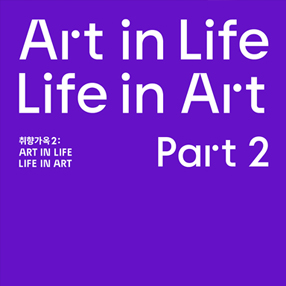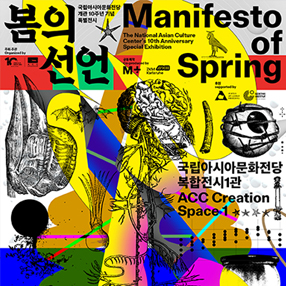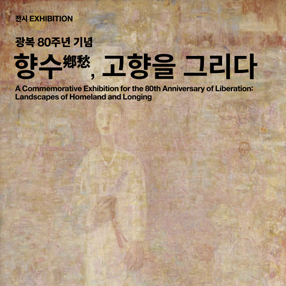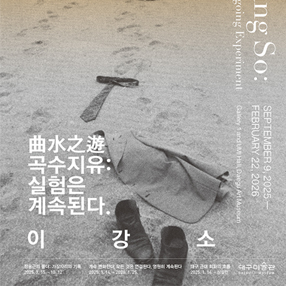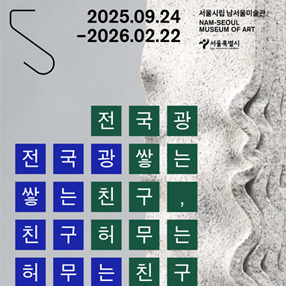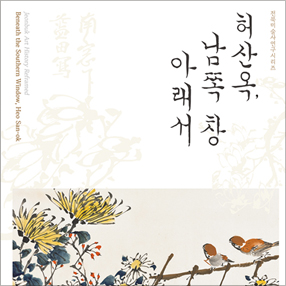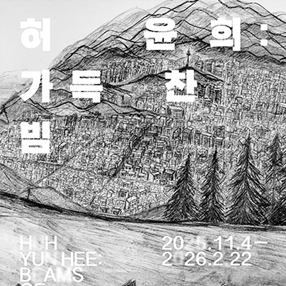본문
-
이강소
From a River-99215, Acrylic on canvas, 259 x 194 cm
-
이강소
Emptiness-14012, Acrylic on canvas, 250 x 485 cm
-
이강소
Serenity-18172, 2018, Acrylic on canvas, 194 x 258 cm
-
이강소
Serenity-16116, 2016, Acrylic on canvas, 181.8 x 227.3 cm
-
이강소
Serenity-20035, 2020, Acrylic on canvas, 112 x 145.5 cm
-
이강소
Serenity-18214, 2018, Acrylic on canvas, 112 x 145 cm
-
이강소
Serenity-20063, 2020, Acrylic on canvas, 130.3 x 162 cm
-
이강소
Serenity-20073, 2020, Acrylic on canvas, 162 x 130.3 cm
-
이강소
Emptiness-N-10070312, 2010, Acrylic on canvas, 130.3 x 162 cm
-
Press Release
“매 순간마다 조금씩 낯선 저에 의해 그려지는 회화들, 그리고 매 순간마다 조금씩 낯선 저에 의해서 문자처럼 써지는 회화들, 순간 저에게 매혹적으로 자극을 준 색채에 의해 그려진 회화들. 그리고 붓질들의 느림과 빠름을 경험해 봤습니다. 그리고 계속해서 습관적인 붓질로부터 조금씩이나마 벗어나 보려고 노력했습니다.”
- 이강소
갤러리현대는 이강소의 개인전 《몽유(夢遊, From a Dream)》를 6월 16일부터 8월 1일까지 개최한다. 《몽유》는 작가가 1990년대 말부터 2021년까지 완성한 회화 30여 점을 엄선한 전시로, 신작을 중심으로 ‘화가’ 이강소의 진면목을 확인하기 위해 마련됐다. 일필휘지(一筆揮之)로 남긴 역동적인 붓질과 과감한 여백이 아름다운 대형 회화, 여러 층위로 칠한 거친 추상적 붓질과 1980년대 말부터 작가의 작품에 아이콘처럼 등장한 새와 나룻배 등을 연상시키는 구체적 형상이 공존하는 회화, 회색이나 흑백의 모노톤 회화와 극적으로 대비되는 형형색색의 눈부신 컬러를 사용해 평면의 캔버스에 무한의 공간성을 구현한 실험적 신작 회화 등을 함께 선보인다. 전시를 찾은 관객은 이강소가 지난 20년 넘게 전개한 회화적 언어의 정수를 만끽할 수 있을 것이다.
이강소는 한국 현대미술과 동시대미술사를 논하며 빼놓을 수 없는 거장이다. 그는 실험미술의 새로운 움직임을 이끌던 1970년대부터 오늘에 이르기까지, 설치, 퍼포먼스, 사진, 비디오, 판화, 회화, 조각 등 매체에 구애받지 않는 왕성한 창작 활동을 펼쳤으며, 특정 사조나 형식적 방법론에 안주하지 않았다.《몽유(夢遊, From a Dream)》는 2009년 회화와 조각, 사진으로 구성한 개인전까지 포함해, 작가와 갤러리현대가 함께 하는 4번째 개인전이다. 앞선 전시가 이강소라는 거장과 그의 실험미술 작품이 한국 미술사에 남긴 의의를 학구적으로 탐색했다면, 《몽유》는 그의 회화 작품에 작가의 독창적 세계관이 구체화되는 방식, 그 시각적, 형식적인 차이에도 불구하고 1970년대 실험미술 작품과 1980년대부터 최근까지의 회화 작품이 공유하는 작가적 문제의식 등을 동시에 살피는 전시다.
“꿈속에서 놀다” 정도로 풀이할 수 있는, 전시 제목 ‘몽유(夢遊)’는 이강소의 철학적 세계관을 함축한 키워드이자, 그가 작품에 담고 싶은 시대적 명제라 할 수 있다. 그는 무척 자명해 보이는 이 세계가, 실은 꿈과 같다고 해석한다. “나에게 이 세계는 엄청난 신비로 가득하다. 동시에 정신 차릴 수도 없이 복잡하고 가공스럽다. 만물은 생명을 다해도 그 원소들은 없어지지 않는다. 흩어지더라도 우주의 구조와 함께 알 수 없는 인과의 생멸을 거듭한다는 것이다. 영원히 끝나지 않을 생멸의 연기는 우주 저 멀리까지 펼쳐질 것이다.”(작가 노트) 어린 시절부터 학습한 동양철학과 양자역학 등에 기반을 둔 그의 이러한 통찰은 작품 곳곳에 자연스럽게 스며 있다.
2010년 중후반부터 현재까지, 작가는 <청명(Serenity)>이라는 제목의 회화 연작을 이어가고 있다. 동양 회화의 여백의 미와 작가의 호흡과 리듬, 몸의 제스처를 고스란히 간직한 강렬한 획의 교차가 잊히지 않는 시각 경험을 선사하는 <청명> 연작은 이강소의 작품 세계를 명징하게 드러낸다. 작가는 전시의 주요 출품작인 <청명> 연작에 관해, “내가 밝고 맑은 정신 상태를 유지하면서 붓질을 했을 때, 그것을 보는 관객도 ‘청명’한 기운을 공유할 수 있을 것”이라고 강조한다. 전시를 기념한 도록에 에세이를 쓴 미술사학자 송희경은 이강소의 <청명> 연작이 “그림, 문자, 시의 공통된 특성인 함축, 여운, 기세가 집약된 시서화일률의 예술”이라고 분석한다.
1층 전시장에서는 빠른 붓 놀림으로 굵은 선을 표현한 <청명> 연작 3점과 <강에서>(1999) 연작 3점을 소개한다. 관객은 1990년대 말-2010년대 중반-2020년대에 이르는 이강소 회화의 변화를 한 자리에서 조망할 수 있다. 이 작품들에는 작가가 작품을 통해 전달하려는 ‘기(氣)’의 양상이 잘 나타난다. 만물의 기운을 붓으로 시각화하는 것은 작가로서 이강소에게 큰 과제였다. 그는 보이지 않는 ‘기(氣)’가 존재한다고 믿고, 항상 '기’를 이미지로 남기려는 시도를 멈추지 않았다. 1999년 프랑스 니스 갈레리데퐁세트에서 처음 발표된 <강에서> 연작의 화면에는 유연하고 재빠르게 캔버스를 지나간, 농담이 다른 무수한 격정적 붓질의 흔적이 남아 있다. 이 작품은 제목 때문에 추상화된 산수풍경이나 세차게 흘러가는 강물처럼도 보인다.
지하 전시장과 2층 전시장에서는 역동적인 획과 대담한 여백의 다채로운 변주에 집중한다. 이강소는 계산하거나 의도된 사고를 최대한 배제하고, 붓을 든 손의 감각과 자연스러운 호흡에 따라 생각할 겨를도 없이 일련의 획을 캔버스에 그려간다. 이때, 그는 서양의 붓보다 길어 사용하는 사람의 놀림에 따라 더 크게 작용하고 반응하는 동양의 붓을 사용한다. 작가가 붓과 손, 감정과 정신이 혼연일체를 이룬 상황에서 남긴 다종다양한 붓질은 관객을 무한한 상상의 세계로 초대한다. 좌에서 우로 화면을 가로지르며 툭툭 던져진 획, 짧고 길고 다시 짧은 호흡의 획, 수직과 수평의 리듬이 살아있는 음악적 획, 캔버스와 싸우듯 격렬한 파장을 일으킨 획, 운동의 방향을 달리하며 면을 만드는 획 등 ‘일획의 미학’을 지닌 그의 획들은 옛 문인화의 전통을 품으며, 동시대 회화의 언어성을 풍성하게 확장해 간다. 지하 전시장의 폭 5m에 가까운 작품 <허-14012>(2014), <청명-20062>(2020), <청명-20063>(2020), 2층 전시장의 <청명-16124>(2016), <청명-17010>(2017) 등은 작가의 신체로 구현된 세계의 보이지 않는, 상상할 수도 없는 속도로 소용돌이치는 어떤 풍경이다.
2층 전시장에는 이강소의 작품에 1990년대부터 본격적으로 등장하며, 그의 트레이드 마크가 된 새와 배 등의 형상이 추상적 붓질과 함께 등장하는 작품을 소개한다. 새, 사슴, 배 혹은 산, 집과 같은 단순하지만 유동적인 이미지 기호는, 그려지다 만 듯 몇 개의 선만으로 그 모습을 드러낸다. 이런 형상은 색과 농담을 달리하며 칠해진 추상화된 붓질과 공존하며 이강소 회화에 이중의 구조를 형성한다. 자연과 문명의 상징인 대상과 자유롭게 운행된 필획을 병치해 놓음으로써, 그는 틀에 박힌 관념으로서의 세계가 아닌, 늘 ‘생성’의 과정에 있는 자연스러운 삶의 한 본질을 포착한다. 작가의 개입을 최소화시켜 관객이 작품을 다각도로 해석하길 원하는 그는, "오리로 보든 배, 사슴으로 보든 상관없다. 보는 사람이 인지하고 즉시 사라지는 환상일 뿐이다. 각자 자신이 판단하고 느끼고 경험하게 하려는 것”이라고 덧붙인다. 《몽유》에 처음으로 선보이는 채색이 사용된 <청명> 연작은 강렬한 주홍과 농담이 다른 군청의 붓질이 관객의 시선을 사로잡는다. 여러 차례 겹쳐진 붓질로 다층화된 추상의 공간을 만들고, 그곳을 노니는 듯한 대상의 흔적을 가볍게 그려 놓은, 초여름의 상쾌한 바람처럼 은은하고, 역동적이면서도 평온한 분위기의 회화가 탄생했다.
이강소 작가 스스로 “그려진 그림”이라 작품을 설명하듯, 그는 작가의 주관적 감정 표현이나 의도, 일방적인 정답 제시를 피하고, 보이는 것과 보이지 않는 것, 입자와 에너지, 이곳과 저곳, 있음과 없음, 나와 너 등 그 모든 시공간의 찰나를 마치 신선처럼 “왔다리 갔다리”하며, 예상하지 못한 ‘기운생동(氣韻生動)’의 붓질로 관객에게 세계를 보는 또 다른 시각을 제공한다. 즉, 이강소에게 회화(작품)는 세계가 고정불변하고 자명하다는 근대적 사고방식에서 벗어나려는 부단한 수행의 결과이자, 끊임없이 부유하고 율동하는 만물의 진실을 드러내는 일이다. 또한 인간이 보고 경험하는 세계가 실재인가를 묻는 철학적 화두이며, 인간의 관점에서 벗어나 이 세계를 어떻게 시각화할 수 있는가에 대한 답변이다.
“Paintings drawn by the transitory self, somewhat unknown, Paintings written like texts by my own self, unfamiliar every moment, Paintings done with dazzling colors that captivated me. And the swift and the slow speed of the strokes: those are what I have experienced. Then I have persistently striven to avoid marking the habitual brushstrokes.”
- Lee Kang-So
Gallery Hyundai presents Lee Kang-So’s solo exhibition From a Dream from June 16 through August 1. From a Dream highlights a careful selection of approximately thirty paintings created between the late 1990’s and 2021, with a focus on newer pieces and the artist’s creative essence revealed within. Visitors will experience a range of works: those displaying the coexistence between dynamic brushstrokes dashed in a single movement and large scale paintings with bold margins; multiple-layered works of abstract, rough brushstrokes coupled with recognizable forms such as birds or boats that have appeared as icons in artist’s paintings since the late 1980’s; and monotone paintings of greyscale or black and white radically contrasted with those of vibrant colors that materialize a sense of infinite space upon flat canvas. Through these elements, we can enjoy the quintessence of Lee’s painterly language that has unfolded over the last two decades.
Lee Kang-So is an indelible presence in the history of Korean contemporary art. From the 1970’s to the present, he has spearheaded new movements in experimental art unbound to particular trends or formal methodology via his multidisciplinary practice spanning installation, performance, photography, video, print, painting, and sculpture. From a Dream marks the artist’s fourth solo exhibition organized by Gallery Hyundai. If the earlier exhibitions conducted academic investigations of the lasting significance of Lee Kang-So as a master figure and his experimental works in the history of Korean art, From a Dream explores how his unique worldview is materialized in his works and what problematics are shared between experimental works of the 1970’s and paintings from the 1980’s to the present despite their formal differences.
Interpreted as something close to “frolicking in dreams,” the title is simultaneously a keyword condensing Lee Kang-So’s life philosophy and his position on our own time. He views our seemingly self-explanatory world as dreamlike in reality - “To me, this world is full of immense mysteries. It is at the same time dizzyingly complex and fearsome. After all things extinguish, their atoms never disappear, but they only scatter, repeating birth and death with cause and effect unknown in tandem with the structure of this universe. This endless continuance of birth and death will extend towards the furthest corner of the universe” (from artist’s note). Such insight, based on East Asian philosophy he learned from an early age and on quantum mechanics, is seamlessly threaded in each of his works.
From the mid-2010’s to the present, the artist has been working on a series of paintings entitled Serenity. Offering an unforgettable visual experience that merges the beauty of the fringe dating back to East Asian painting with brushstrokes retaining the artist’s own breath, rhythm, and bodily gestures, Serenity provides a lucid window to Lee’s creative world. On the series, he emphasizes that “when I do brushwork with a clear and bright state of mind, the audience who sees it also will be able to share a sense of ‘serenity.’” Art historian, Heekyung Song, who contributed an essay to the exhibition catalogue, interprets the Serenity series as “an art of oneness between poems, calligraphy, and painting, condensing the common qualities of the three genres: connotation, lingering, and spirit.”
The first floor gallery features three works from the Serenity series characterized by thick lines created from fast brushwork, and three works of the From a River (1999) series. Viewers are thus able to witness the transformations of Lee Kang-So’s painting from the late 1990’s into the mid 2010’s and up to the 2020’s. These works illustrate aspects of qi (氣), or energy flow, that the artist intended to convey. Indeed, one of his major tasks was to visualize the energy of all being. He has always believed in the existence of an invisible energy and continuously strove to document it in the image. From a River series, first presented at Galerie des Ponchettes in Nice, France, leaves traces of numerous impassioned brushstrokes of various density, all passing through the canvas swift and smooth. Perhaps because of their title, they also appear to be abstracted mountain-and-water landscape or the furious roar of a river.
The basement and second floor galleries focus on various riffs on bold brushstrokes and emptiness. Lee Kang-So excludes calculated or premeditated thought as much as possible; leaving a series of strokes linked to sensations of his hand holding the brush and natural rhythm of breath, he places every stroke without taking a moment of rumination. He uses the East Asian brush because the longer length compared to the Western brush more dramatically interacts with and reacts to the user’s movements. The countless kinds of brushstrokes left at a state of a union among brush, hand, emotion, and spirit invite the viewers into a world of boundless imagination. Curt strokes thrown from the left of the canvas to the right, strokes breathing short, long, and short again, melodious strokes enlivening the rhythm of horizontal and vertical, strokes inciting violent waves as if battling the canvas, strokes changing direction to form a plane – all of these strokes, each in a single stroke, inherit the tradition of traditional literati paintings while expanding the linguistics of contemporary painting. Emptiness-14012 (2014), Serenity-20062 (2020), and Serenity-20063 (2020) in the basement gallery, each amounting to five meters in width, and Serenity-16124 (2016) and Serenity-17010 (2017) on the second floor comprise one snapshot in a world eddying with unimaginable speed through the body of the artist.
The second floor invites us to Lee’s now signature combination of images that resemble birds and boats with abstract brushstrokes, a style he has actively executed since the 1990’s. Simple yet fluid symbols like birds, deer, boats, mountains, or houses appear as mere few lines that have barely been drawn. These images coexist with abstracted brushstrokes of varying colors and density, forming a dual structure in Lee’s paintings. By juxtaposing objects symbolizing nature and civilization with freely drawn strokes, he captures one essence of natural life that is always in the process of creation, not one as limited by our preconceptions, thereby hoping to open multiple avenues for interpretation by minimizing the artist’s intervention. He adds that “it doesn’t matter if you see it as a duck, a boat, or a deer. They are all illusions perceived then dissipated at the eye of the beholder. I only try to have each person decide, feel, and experience as one’s own”. Works from the Serenity series using vivid color, introduced for the first time at this exhibition, seizes our attention with bold orange and navy strokes of different density. Layers of brushstrokes create an abstract space with depth, while light traces of objects frolicking within produce a dynamic yet serene atmosphere like the refreshing silvery winds of early summer.
As Lee Kang-So himself characterizes his works as “pictures that were drawn,” he avoids subjective expressions of emotions, intention, or a unilateral solution. Instead, he prefers to traverse between the visible and invisible, particles and energy, here and there, being and non-being, me and you, all in a moment of space and time like a wise spirit. His unpredictable brushstrokes enlivened with the living energy provide viewers with an alternate perspective of seeing the world. In other words, Lee’s paintings, or artworks, are a result of ceaseless efforts to escape the modernist view of the world as immutable and self-explanatory, revealing the truth of all being as always buoyant and pulsating. They simultaneously pose a philosophical question asking whether the world equals reality while providing an answer to how we can visualize this world stepping outside our own human perspective.전시제목이강소: 몽유(夢遊, From a Dream)
전시기간2021.06.16(수) - 2021.08.01(일)
참여작가 이강소
관람시간10:00am - 06:00pm
휴관일월요일
장르회화
관람료무료
장소갤러리현대 GALLERY HYUNDAI (서울 종로구 삼청로 14-6 (사간동) )
연락처02.2287.3500
-
Artists in This Show
-
1943년 대구출생
-
갤러리현대(GALLERY HYUNDAI) Shows on Mu:umView All
Current Shows
-
네가 4시에 온다면 난 3시부터 행복할 거야
수원시립미술관
2025.04.15 ~ 2026.02.22
-
취향가옥 2: Art in Life, Life in Art 2
디뮤지엄
2025.06.28 ~ 2026.02.22
-
국립아시아문화전당 개관 10주년 기념 특별전시 《봄의 선언》
국립아시아문화전당
2025.09.05 ~ 2026.02.22
-
광복 80주년 기념 «향수(鄕愁), 고향을 그리다»
국립현대미술관
2025.08.14 ~ 2026.02.22
-
이강소_曲水之遊 곡수지유: 실험은 계속된다
대구미술관
2025.09.09 ~ 2026.02.22
-
전국광: 쌓는 친구, 허무는 친구
서울시립 남서울미술관
2025.09.24 ~ 2026.02.22
-
허산옥, 남쪽 창 아래서
전북도립미술관
2025.11.14 ~ 2026.02.22
-
허윤희: 가득찬 빔
대구미술관
2025.11.04 ~ 2026.02.22




